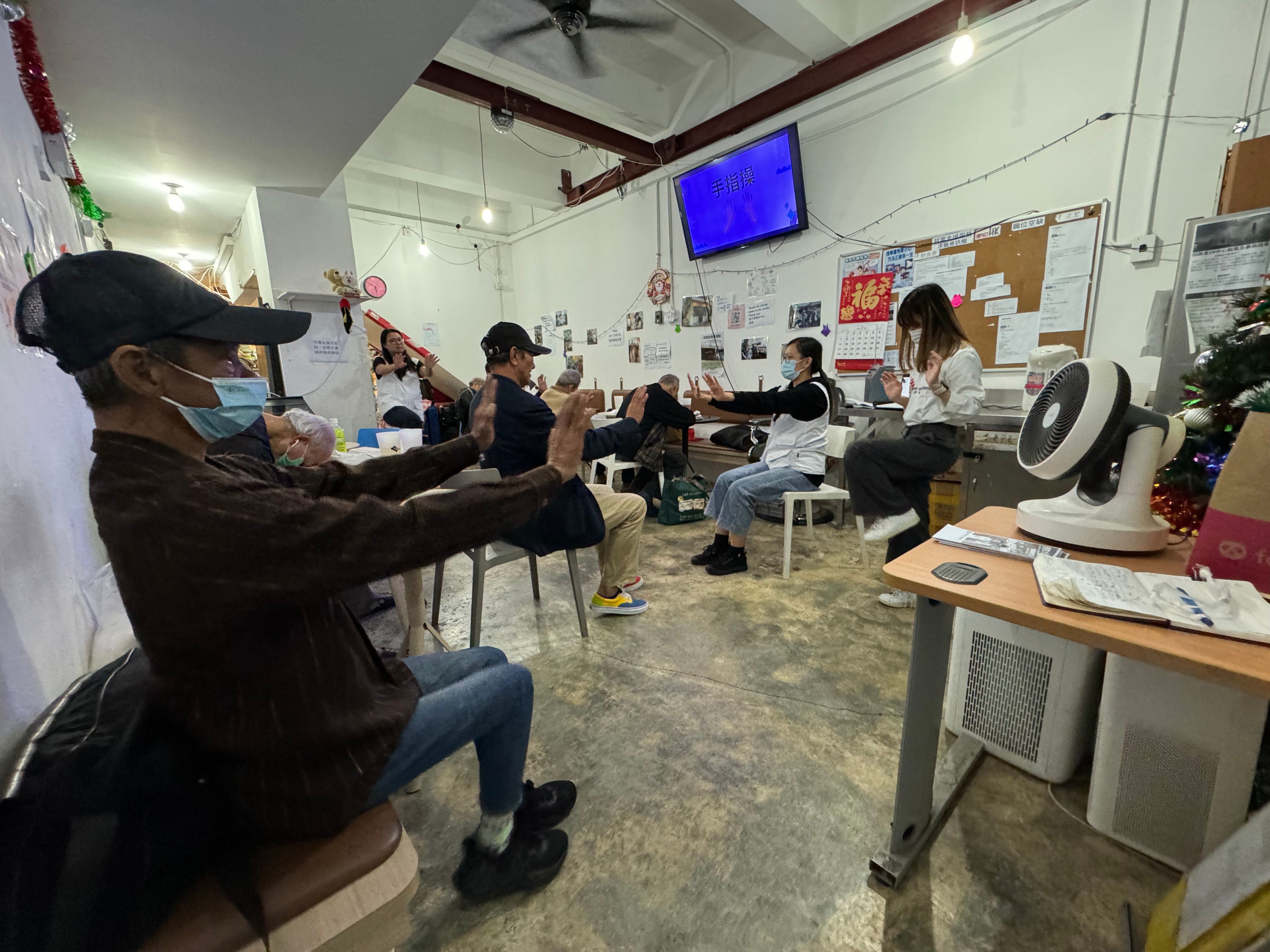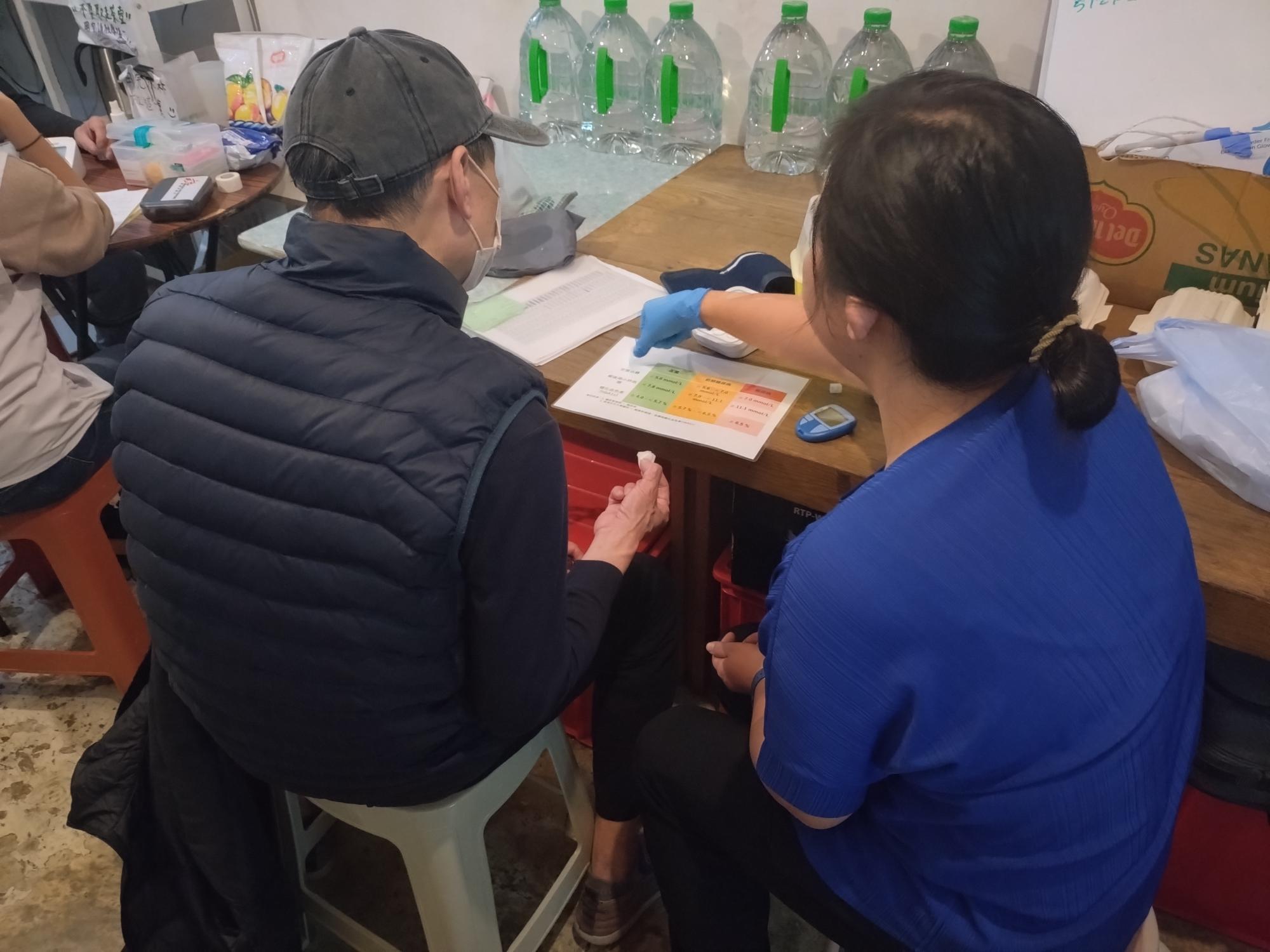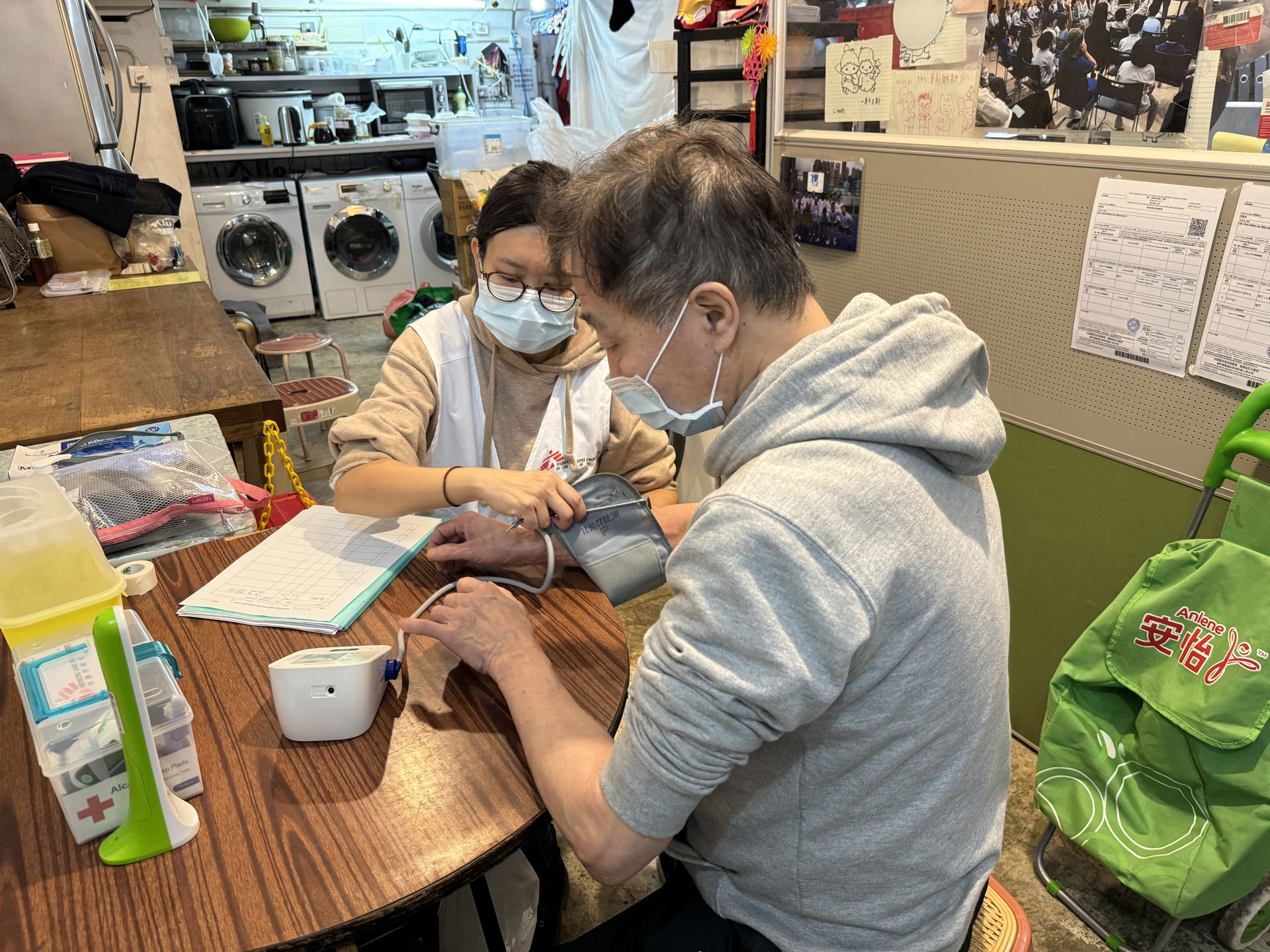In August 2023, Médecins Sans Frontières (MSF) launched a project addressing the health needs of homeless people in Hong Kong. It is not uncommon to find people lingering on the margins of the medical system, and homeless people in Hong Kong are no exception.
During past emergency responses, MSF had witnessed some of the needs of local homeless people and so in 2023 a three-month outreach assessment on their physical as well as mental health conditions and needs was conducted. According to the assessment, half of the people surveyed reported suffering from ailments such as cadiovascular and endocrine problems. Out of those, 40 per cent said they do not seek medical treatment even if they fall ill or find themselves in an emergency because of cost concerns, and also because they deprioritise their health needs. Some even said they last saw a doctor five to ten years ago. Based on these results, it was decided to launch a project aimed at increasing people’s understanding and awareness of their health conditions and subsequently to enhance their access to healthcare.
MSF has since been working in Yau Tsim Mong and Sham Shui Po districts, providing the homeless population — the majority of whom aged 50 or above — free medical care such as measuring blood pressure, blood sugar and weight and testing for hepatitis. This enables early prevention and diagnosis of non-communicable diseases (NCDs), especially of the Three Highs (high blood pressure, high cholesterol and high blood sugar) which could be contributing factors for other NCDs. The MSF team provides follow-up care to homeless individuals, including routine check-ups and health promotion sessions on pertinent health issues. When necessary, a referral to the public healthcare system is made.
On the other hand, each of their lived experiences prior to and during homelessness may cause various impacts on their mental wellbeing. The MSF team provides individual counselling and organises support groups for homeless people in an effort to create a safe environment where they are encouraged to share their experiences and receive support. The team also conducts psychoeducation sessions, where they disseminate information on prevalent mental health issues and provide tips to help them handle their struggles. To extend the reach of these activities, the team conducts regular outreach at various homeless hotspots in the districts, and has partnered with local non-governmental organisation “ImpactHK” to offer their homeless service users these healthcare activities, jointly following up on cases.
 During a health promotion session, MSF team leads homeless participants in simple hand and finger coordination exercises that help maintain cognitive functions. © MSF
During a health promotion session, MSF team leads homeless participants in simple hand and finger coordination exercises that help maintain cognitive functions. © MSF
Homeless people tend to find it difficult to pool their already limited resources to prioritise health issues, as they may lack sufficient funds or are unable to maintain sufficient funds consistently to sustain the long-term expenses of medical treatments. Drawing on months of observation, MSF Nurse Kwok says, “Unless their illness causes massive pain or hinders bodily functions, homeless people are less inclined to seek medical help proactively.” Some may also find the phone- and mobile app-based appointment system used by local public healthcare system not user-friendly, which hinders their motivation to seek support.
Personal history and the daily difficulties homeless people face in their lives affect not only prioritisation of resources, but also some’s attitude towards new services. Many are troubled by and dealing with career and family issues, or even violence, so they might take much longer time to develop trust in unfamiliar people and services. Addressing this specific concern, the MSF team runs free activities strategically in locations familiar and convenient to them, blending into their living environment and adapting to their daily habits to minimise the hurdles homeless people might face when seeking health support.
 An MSF nurse explains blood sugar test results to a homeless service user. © MSF
An MSF nurse explains blood sugar test results to a homeless service user. © MSF
Dedicating time and patience is necessary to build trust with the homeless community. Kwok recalls a homeless service user, Lee*, who frequented ImpactHK’s activity centre but never showed interest in the MSF team nor its activities. After consistent attempts from the team to show care and compassion, he participated in a health education session, and even urged the people around him to pay attention to the MSF medical team’s sharing. Another homeless person, Cheung*, who attended several health education talks shared that even though he does not suffer from the illnesses mentioned in the talks, he was able to share the information and introduce MSF’s service to another homeless individual, who then volunteered to participate in a health screening session.
Through health checks, the team aims to inform each individual of their physical and mental health status and provide them with relevant information and support. For example, explaining their chronic health issues, such as the Three Highs, and educating them on the long-term risks and implications of potential strokes, heart disease, or other serious illnesses. MSF also supports their reintegration into the public healthcare system by booking appropriate public medical support services for them, and giving timely reminders to encourage their attendance. According to the MSF team’s experience, it often takes at least two to three months of regular contact to start developing a more trusting relationship with people experiencing homelessness.
In terms of mental distress, MSF Mental Health Manager Retsat Dazang says that because of what feels like never-ending hardship, the homeless people her team interacts with report feelings of isolation, hopelessness, being unsafe and abandoned. To them, support from their communities and peers are paramount. The MSF mental health team runs regular individual and group psychoeducation sessions and psychosocial support group, as well as individual counselling sessions to make them feel cared for, improve their mental health awareness and help them better cope with their mental health distresses, and to share relevant information to help nurture their abilities for self-care as well as to care for those around them.
Good health, be it physical or mental, is an essential component of every person's overall wellbeing, and every person regardless of their social status or wealth deserves access to high quality medical support. Combined effort and comprehensive planning from civil society and government organisations is necessary to close the healthcare access gap faced by homeless people in Hong Kong. “We need all hands on deck to improve the physical and mental health of local homeless people, and we hope to see more awareness and acceptance for those who are in need,” concluded Dazang.
*Names are pseudonyms.
|
Hong Kong Project Service Figures (31 Aug 2023 - 30 Apr 2024)# |
|---|
|



